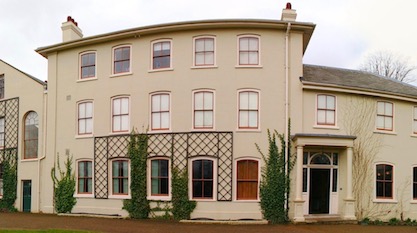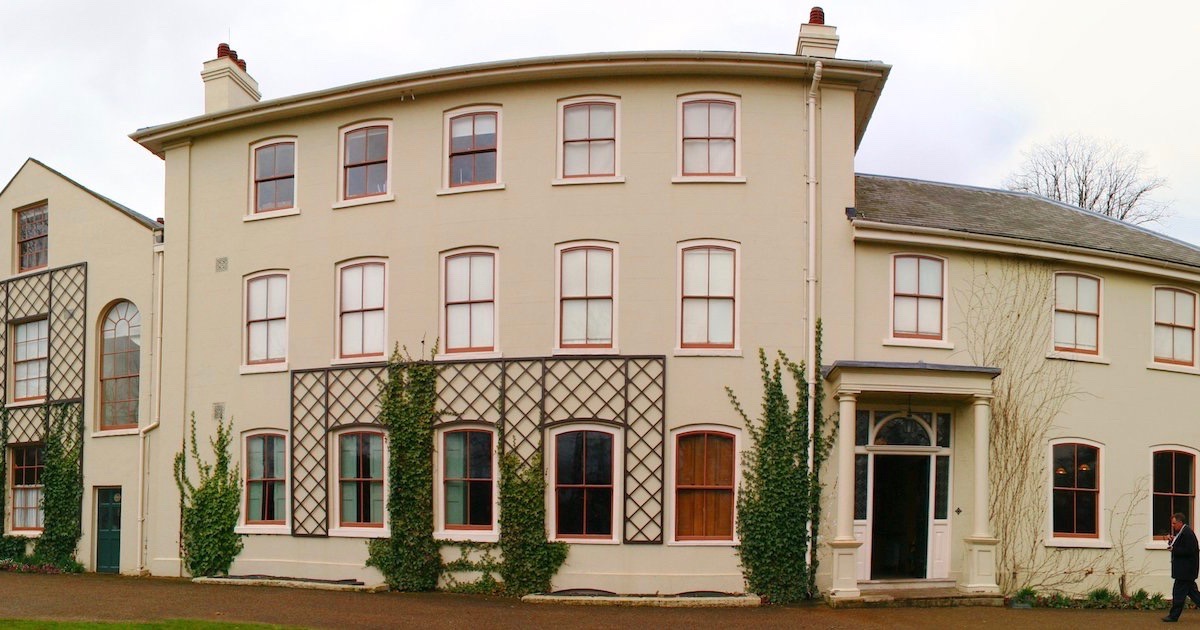 Evolution
Evolution
Darwinian Faith and Fetish


Andrew Berry, the Harvard biologist who conducts a Darwin pilgrimage each year for undergraduates to Darwin-related sites in England, responds to my recent post about the cult-like reverence in which many Darwinists hold all things Darwin.
Berry:
I agree with [Egnor] it is indeed fetishization of All Things Darwin/Wallace (And More) that those of us interested in the history of science indulge in (and my program promotes). This is the reason first editions of The Origin sell for hundreds of thousands of dollars. We admire Darwin and his colleagues, and enjoy the opportunity to feel in some way closer to the events and the people that we’re interested in by visiting sites etc associated with them, just as, presumably, Mr Egnor feels closer to Jesus when he travels to Jerusalem or a Muslim feels more at-one (or whatever) with the prophet on a visit to Mecca.
He’s right. Worshippers enjoy visiting the sites associated with their faith. I merely pointed out that Darwinists don’t differ much, in that regard, from people of other faiths.
Berry:
But there is a difference. Historians are interested in these acts of “pilgrimage” (we prefer the term “field trip”) because they allow us to better understand the influences acting upon our heroes and to better appreciate the context in which they were working. When Darwin scholar Jim Moore takes my students around Cambridge, it is with an eye to understanding the strict theocratic universe that was Cambridge University when Darwin studied there.
A Heyday for Atheism
Ironically, Darwin got little genuine push-back from “theocracy.” There was no theocracy of any sort in Darwin’s homeland, of course. Theocracy means rule by priests in the name of God, which was not the case in Cambridge or in England, and certainly not in the mid 19th century, which was a heyday for atheism in England. There were plenty of Englishmen who believed in God, of course, and university life was nominally Christian, but atheism (generally implicit and functional rather than explicit) was a powerful intellectual fad in academia. This provided a dark wet soil for Darwinism to sprout.
In fact, Darwin’s idiot “theory” that survival of survivors explained biological adaptation gained traction precisely because it came at a time in which British intellectual culture was prepared for an atheist creation myth. Hobbes and Hume and several generations of atheists had proposed worldviews that were functionally atheist, but even staunch atheists couldn’t explain design in living things. Biology made it damned hard to be an intellectually fulfilled atheist. Atheism had no creation myth, until the Origin. And it was precisely this implication — that Darwin had explained adaptation of living things without recourse to intelligent agency — that secured the astonishingly rapid and relatively untroubled acceptance of survival of the fittest as a scientific “theory.”
All the Rage
Within a few years, Darwinism was all the rage in biological circles, and in fact Mendel’s discovery of genetics, which was roughly cotemporaneous with Darwin’s “discovery” that survivors survive, was ignored for fifty years in no small part because of the hoopla around Darwiniana.
Darwin, beset by hypochondria and delicate work habits, was no victim of theocracy; he met little real opposition to his befuddled science.
Meanwhile, the genuinely great biologists of the 19th century — Pasteur, Mendel, Koch, Ehrlich, Lister, Ramón y Cajal, Sherrington — get none of the worship afforded the valetudinarian barnacle-collector and tautologist, despite their monumental contributions to science and medicine.
Darwin surfed the atheist wave of 19th-century England, and Darwinists return to his shore in Cambridge each year, to bask in that brief summer when atheism, against all odds, seemed to make sense.
Photo: Down House, home of Charles Darwin, by Mario Modesto [CC BY-SA 3.0 or GFDL], from Wikimedia Commons.
